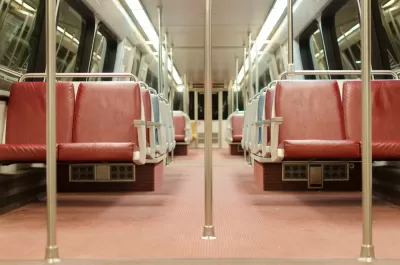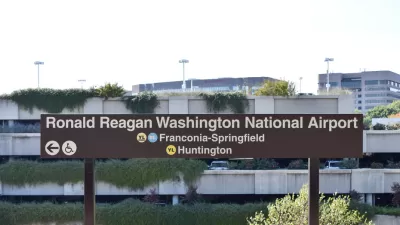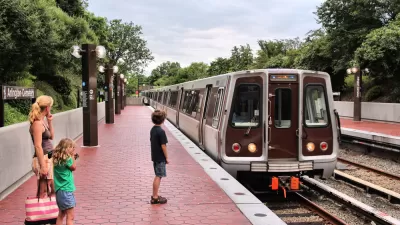The Washington Post opines that the best way to end Metro's 'death spiral' is to have the federal government take it over, similar to the way it intervened in the district's fiscal meltdown in the 1990s or Puerto Rico's debt crisis this summer.

A Washington Post editorial lays out two stark options for the Washington Metropolitan Area Transit Authority (Metro):
One option is to continue allowing Metro to wither, ensuring the Washington metropolitan area’s economic degeneration and imperiling the federal workforce.
Maybe it is time to consider Option B: a federal control board, modeled on those that intervened to manage the District of Columbia amid its fiscal meltdown in the 1990s or, just this year, to rescue Puerto Rico from its debt crisis.
The editorial suggests that a takeover would allow Congress to create a control board which would bring "an infusion of federal cash for Metro" in exchange for "sweeping reforms and service improvements."
A control board would also in effect become the arbitrator of last resort for labor contracts with Metro’s reform-resistant unions.
"Along with new investment, Metro must have new governance," they add. WMATA is governed by a board of directors composed of representatives from Maryland, the District of Columbia, Virginia, and the federal government.
The new control board "(u)nder federal auspices...would include a governing board of transit, finance and management professionals, not local politicians, who have overseen the agency in its descent," they write.
To this observer, the idea has merit. Just look at the roots of the second most heavily used subway system in America.
However, today's Congress appears far more polarized than the Congress that President Lyndon Johnson had to work with to pass mass transit legislation in the 1960s essential to the creation of Metro and other subway systems during the heady days of the Great Society.
Related:
Washington Post: Budget proposal paints grim portrait of Metro’s future, Oct. 30, 2016
A few of the many related posts in Planetizen:
- The Root Causes of the D.C. Metro Crisis, April 28, 2016
- Federal Transit Authority Reports Critical Flaws in D.C. Metro Operations, June 21, 2015
- On the Legacy of the Great Society: the Washington, D.C. Metro, May 27, 2014
Hat tip to Kenyon Karl.
FULL STORY: The Post's View It has come to this: It’s time to consider a federal takeover of Metro

Alabama: Trump Terminates Settlements for Black Communities Harmed By Raw Sewage
Trump deemed the landmark civil rights agreement “illegal DEI and environmental justice policy.”

Planetizen Federal Action Tracker
A weekly monitor of how Trump’s orders and actions are impacting planners and planning in America.

The 120 Year Old Tiny Home Villages That Sheltered San Francisco’s Earthquake Refugees
More than a century ago, San Francisco mobilized to house thousands of residents displaced by the 1906 earthquake. Could their strategy offer a model for the present?

In Both Crashes and Crime, Public Transportation is Far Safer than Driving
Contrary to popular assumptions, public transportation has far lower crash and crime rates than automobile travel. For safer communities, improve and encourage transit travel.

Report: Zoning Reforms Should Complement Nashville’s Ambitious Transit Plan
Without reform, restrictive zoning codes will limit the impact of the city’s planned transit expansion and could exclude some of the residents who depend on transit the most.

Judge Orders Release of Frozen IRA, IIJA Funding
The decision is a victory for environmental groups who charged that freezing funds for critical infrastructure and disaster response programs caused “real and irreparable harm” to communities.
Urban Design for Planners 1: Software Tools
This six-course series explores essential urban design concepts using open source software and equips planners with the tools they need to participate fully in the urban design process.
Planning for Universal Design
Learn the tools for implementing Universal Design in planning regulations.
Clanton & Associates, Inc.
Jessamine County Fiscal Court
Institute for Housing and Urban Development Studies (IHS)
City of Grandview
Harvard GSD Executive Education
Toledo-Lucas County Plan Commissions
Salt Lake City
NYU Wagner Graduate School of Public Service





























